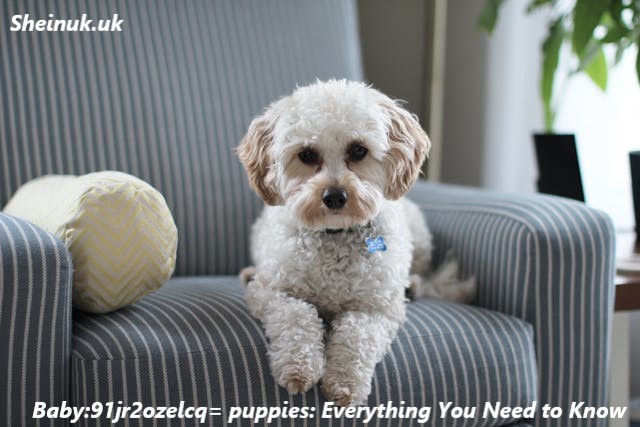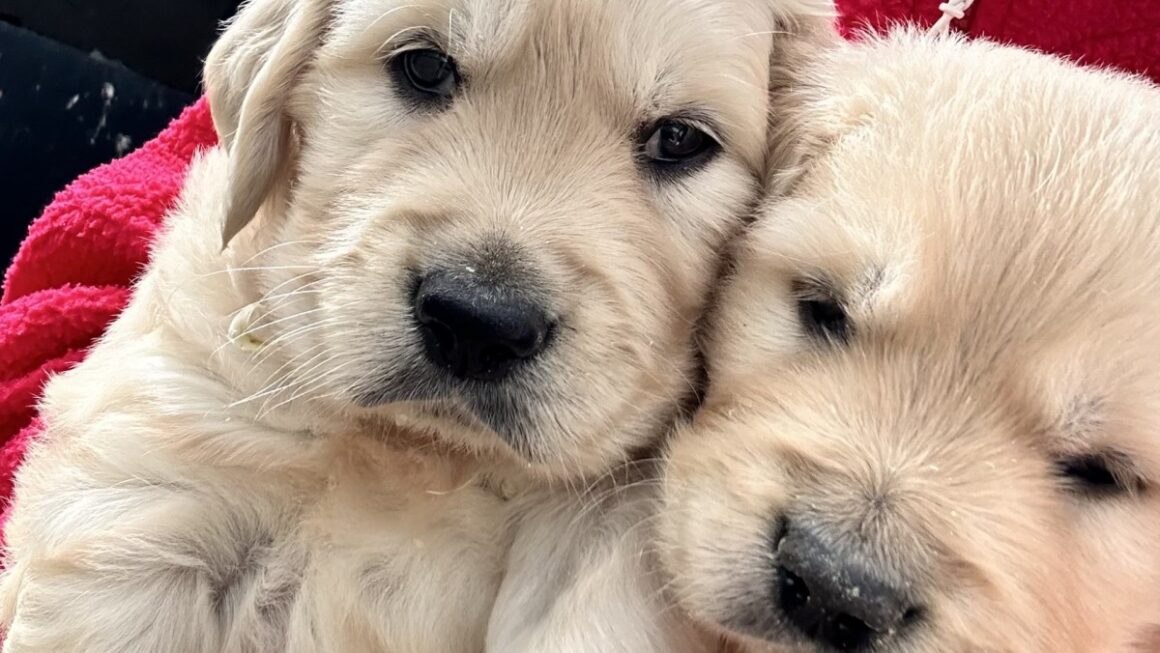Bringing home a Golden Retriever puppy is one of life’s greatest joys. Their playful antics, loving nature, and boundless energy can brighten any day. However, with all that cuteness comes a crucial responsibility: socialization. Properly socializing your Golden Retriever puppy lays the foundation for their behavior as an adult dog. It helps them learn how to interact positively with people, other dogs, and various environments.
Socialization isn’t just about making friends; it’s essential for building confidence and reducing anxiety in new situations. The earlier you start this important process, the better equipped your furry friend will be to navigate the world around them with ease.
Ready to embark on this exciting journey? Let’s dive into why socializing your Golden Retriever puppy matters so much!
Why Socialization is Important for Golden Retriever Puppies
Socialization is vital for Golden Retriever puppies because it shapes their behavior and personality. These pups are naturally friendly and eager to please, but without proper exposure, they can develop fear or anxiety.
When a puppy experiences different environments, people, and other animals early on, they learn how to react appropriately. This helps prevent behavioral issues in adulthood, like aggression or excessive barking.
Golden Retrievers are known for their gentle disposition. Socializing them ensures they grow into well-rounded dogs that enjoy being around others—both humans and pets alike.
Engaging with various stimuli also fosters confidence in your puppy. They’ll feel more secure when faced with unfamiliar situations later in life. This adaptability leads to happier outings at parks, vet visits, and family gatherings where they can shine as the social butterflies they were born to be.
The Best Time to Start Socializing Yourpuppy:1azdln0ha3y= golden retriever
The ideal time to start socializing your Golden Retriever puppy is between 3 and 14 weeks of age. This critical period lays the foundation for their future behavior.
During these early weeks, puppies are especially receptive to new experiences. Introducing them to different environments, people, and other animals can significantly shape their personalities.
It’s essential to expose your pup gradually. Start with short outings that feel safe and enjoyable. Positive interactions during this time can help reduce anxiety in adulthood.
Remember, every puppy is unique. Some may take longer than others to adjust, so be patient and attentive to their needs as they explore the world around them.
Tips for Properly Socializing Yourpuppy:1azdln0ha3y= golden retriever
Start socializing your Golden Retriever puppy early. The critical window is between 3 to 14 weeks of age. During this time, puppies are most receptive to new experiences.
Introduce your pup to various environments, sounds, and people. Visit parks or busy streets where they can meet other dogs and diverse crowds. Ensure these encounters are positive.
Use treats and rewards to encourage good behavior during socialization sessions. Positive reinforcement builds confidence in your puppy while helping them associate new situations with happiness.
Enroll in a puppy kindergarten class for structured interaction with peers under supervision. These classes provide both social skills and essential training fundamentals.
Keep an eye on your puppy’s body language throughout the process. Recognize signs of stress or fear, allowing you to adjust the experience as needed without overwhelming them.
Common Mistakes to Avoid During the Socialization Process
When socializing your Golden Retriever puppy, avoid overwhelming experiences. Too much stimulation can lead to fear or anxiety. Gradually introduce new environments and situations.
Another mistake is neglecting the importance of positive reinforcement. Use treats and praise to encourage good behavior during interactions. This builds confidence and creates a happy association with new experiences.
Don’t rush the process. Each puppy has its own pace for socialization. Forcing them into uncomfortable situations can backfire, causing long-term issues.
It’s also crucial not to isolate your puppy from other dogs or people too often at this stage. Lack of exposure may hinder their ability to adapt later in life.
Don’t forget about consistency in training and exposure routines. Regular outings help reinforce what they learn during each experience, making the process smoother for both you and your pup.
Activities and Places to Socialize Your puppy:1azdln0ha3y= golden retriever
Exploring new environments is essential for your Golden Retriever puppy’s socialization. Parks are fantastic places to introduce them to various sights, sounds, and other dogs.
Consider joining a local dog park where they can interact freely with their peers. Supervised playtime helps build confidence and encourages positive behaviors.
Pet-friendly cafés or shops can also provide a relaxed atmosphere for your puppy to experience different people and noises. The social interactions here will be invaluable.
Classes like obedience training or puppy kindergarten combine learning with fun experiences. These settings allow puppies to engage in structured activities while meeting fellow canine companions.
Neighborhood walks present opportunities for encounters with diverse individuals—bicyclists, joggers, children playing—all contributing positively to your pup’s exposure.
Remember that variety is key! The more experiences you create now, the better equipped your Golden Retriever will be as they grow older.
Dealing with Shyness or Fear in Yourpuppy:1azdln0ha3y= golden retriever
Shyness or fear in a Golden Retriever puppy can be concerning for any owner. Understanding that this behavior is often rooted in unfamiliar experiences is crucial.
Start by creating a safe environment at home. A cozy space with familiar smells and sounds can help your puppy feel more secure. Gradually introduce new stimuli, like people or sounds, one at a time.
Positive reinforcement works wonders. Reward brave actions with treats and praise to build their confidence over time. Short training sessions focused on socialization will help them adapt without overwhelming them.
If they seem scared during outings, take it slow. Allow your puppy to observe from a distance before approaching new sights or sounds gradually. Patience is key; rushing the process may increase anxiety.
Always monitor your puppy’s body language for signs of stress so you can adjust accordingly, ensuring every experience feels positive rather than frightening.
Final Thoughts on Socializing a puppy:1azdln0ha3y= golden retriever
Socializing your Golden Retriever puppy is a vital part of their development. A well-socialized dog tends to be more confident, friendly, and adaptable in various situations. The experiences you provide during the early months will shape how they interact with other dogs, people, and environments throughout their life.
Make sure to take advantage of this critical period by exposing them to different settings, sounds, and sights. Remember that every interaction counts; positive experiences now will lead to a happy adult dog later on.
As you embark on this journey together with your puppy, patience is key. Celebrate small victories along the way and adjust your approach as needed based on their comfort level. Whether it’s meeting new friends or exploring exciting places, each moment spent socializing helps build a strong foundation for an enjoyable life ahead.
Keep learning about your pup’s needs as they grow. With time and dedication, you’ll help them become the loving companion you’ve always wanted—a well-rounded puppy:1azdln0ha3y= golden retriever who thrives in any situation.




